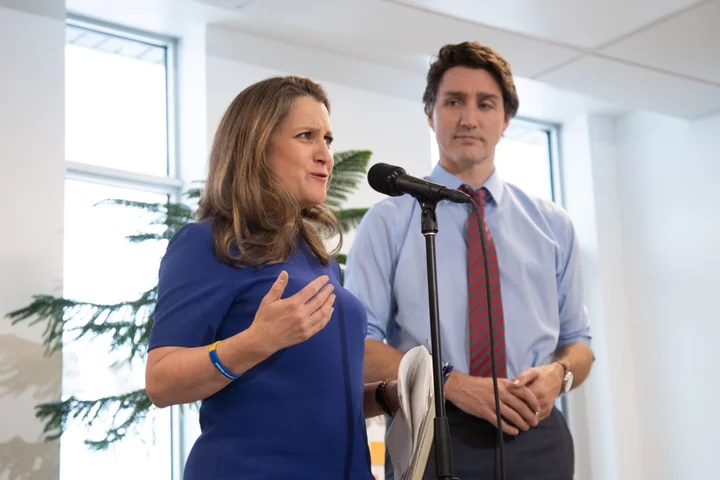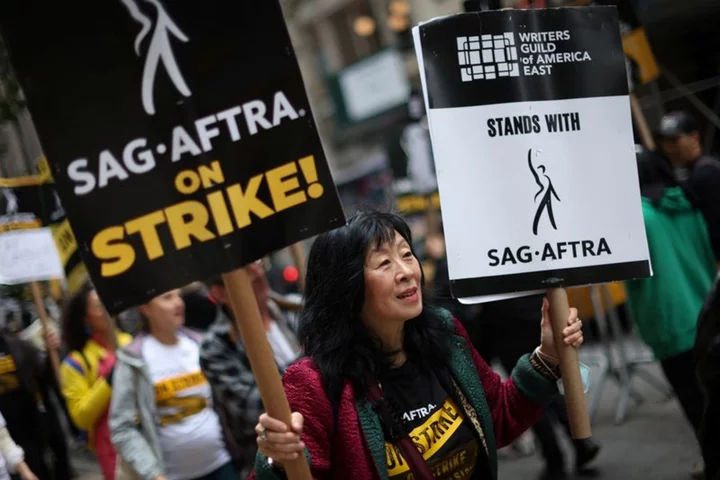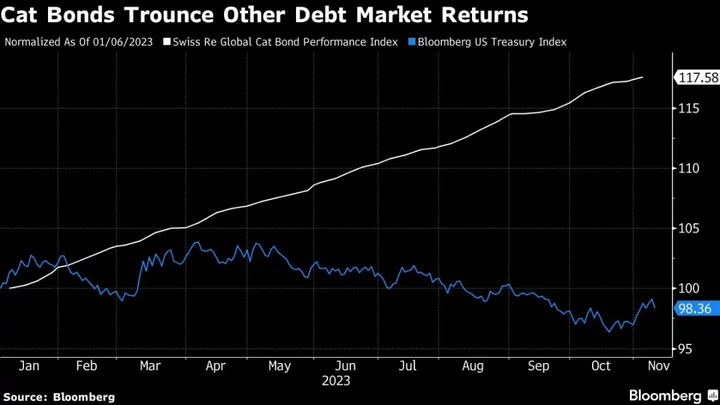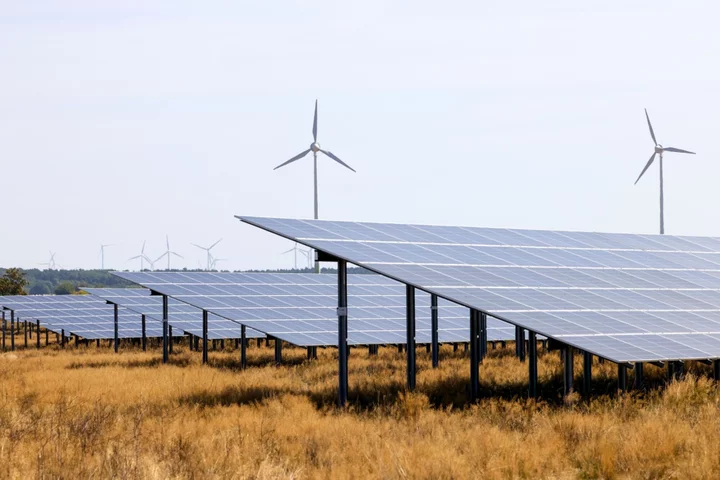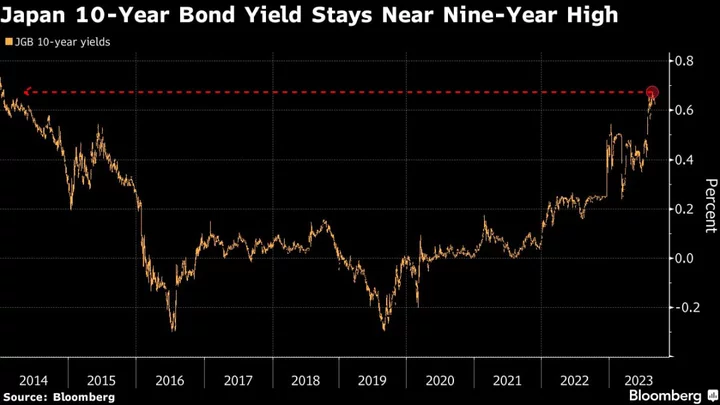Prime Minister Justin Trudeau’s government praised the Bank of Canada for holding interest rates steady, a rare public affirmation of a monetary policy decision.
Finance Minister Chrystia Freeland, who is also deputy prime minister, issued a statement minutes after Governor Tiff Macklem and his officials left borrowing costs unchanged at 5% on Wednesday.
“The Bank of Canada’s decision to maintain its overnight interest rate is welcome relief for Canadians,” Freeland said. “My number one priority is to use all the tools at my disposal, and to work with partners at other levels of government across Canada, to ensure that interest rates can come down as soon as possible.”
She added that she fully respects the independence of the central bank to deliver on its mandate of returning inflation to the 2% target. Still, the comments raise questions about whether the country’s top fiscal authority should be openly commending the decisions of the central bank.
“This is unhelpful and with rare precedence,” Derek Holt, an economist with the Bank of Nova Scotia, wrote in a report to investors.” The optics of Freeland’s response, he said, “create the impression that political interference risks influencing the Bank of Canada’s decisions.”
In practice, the Bank of Canada sets monetary policy completely independent of the federal government. But legally Canada’s finance minister is ultimately responsible for the institution, setting its mandate every five years.
At a news conference later Wednesday in Toronto, Freeland stressed again that she respects the bank’s independence and said her earlier statement was meant to reflect that her government understands the pain Canadians are feeling as a result of higher interest rates.
The finance minister’s remarks are the latest example of the mounting political pressure policymakers face as they try to slow the economy without causing unnecessary financial harm.
Before Wednesday’s decision, the premiers of Ontario, British Columbia, and Newfoundland and Labrador all urged Macklem to cease raising rates. Unlike Freeland, the provincial leaders have no legislative power over the actions of the central bank.
Trudeau and Freeland have also faced criticism from economists who argue their government’s deficit-funded spending has led rates higher than they would have otherwise needed to be.
The Bank of Canada’s mandate agreement, which was renewed by Freeland at the end of 2021, includes a reference to the “joint responsibility” of the central bank and the government in achieving the 2% inflation target and promoting maximum sustainable employment.
The Liberals’ main rival in the next election, Conservative Leader Pierre Poilievre, hammers them for drastic increases in the cost of living every chance he gets. He has also threatened that if he becomes prime minister he will fire Macklem as governor of the central bank.
At her press conference, Freeland made repeated reference to Poilievre’s threats. “Statements like those are absolutely reckless,” she said.
(Updates with economist reaction and comments from Freeland news conference.)

